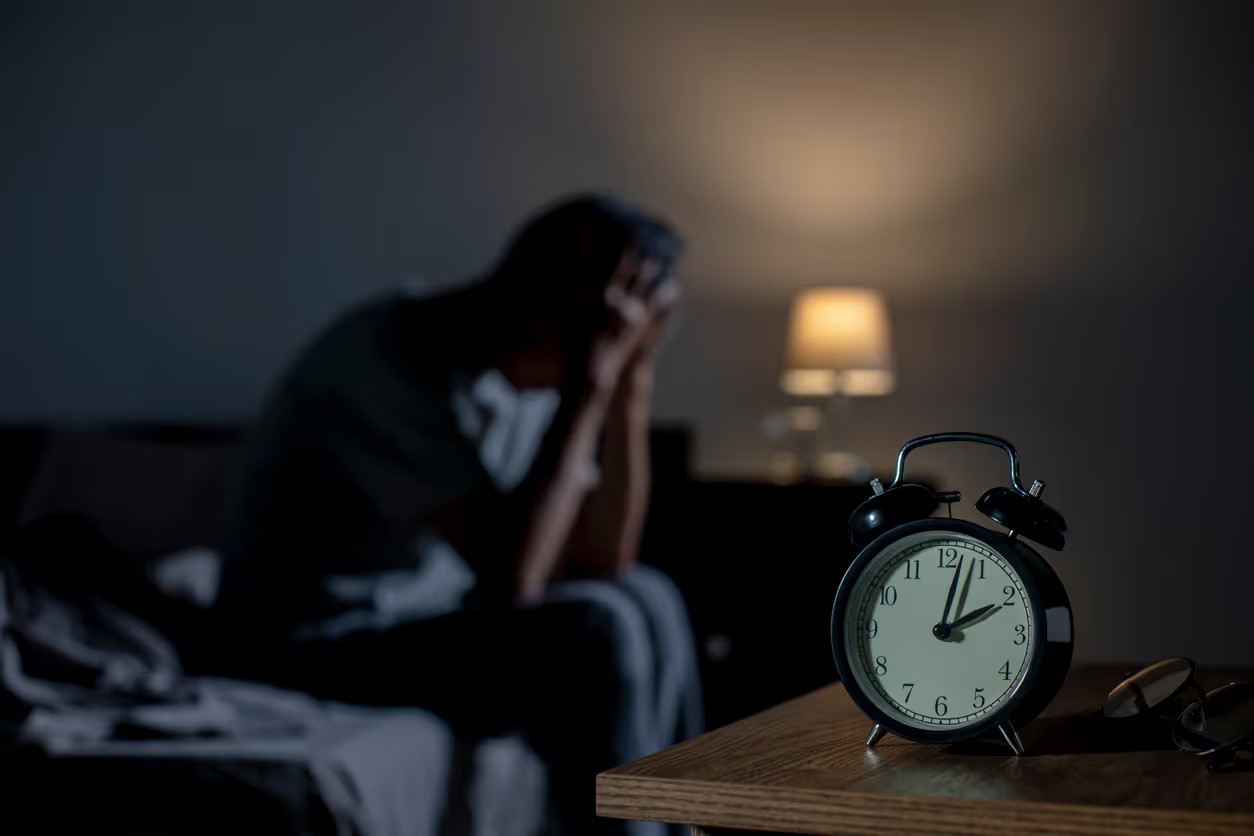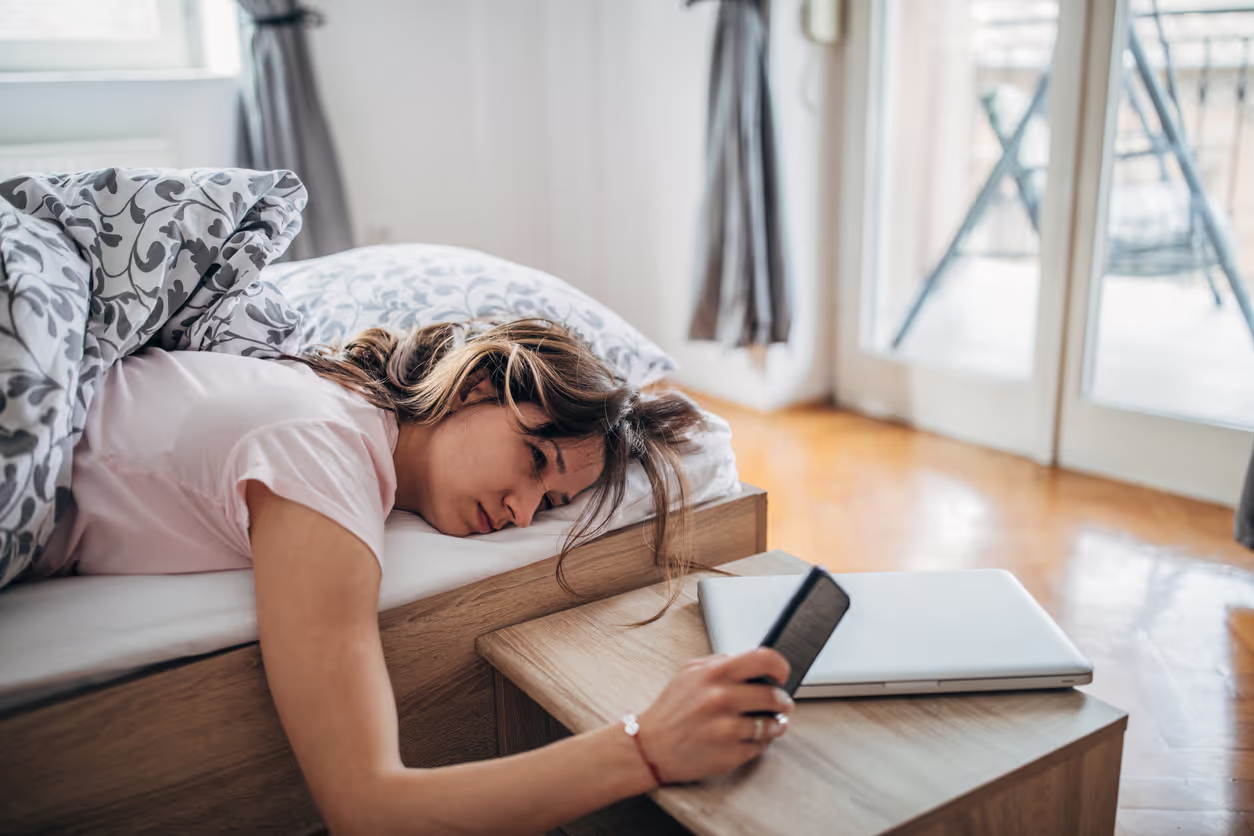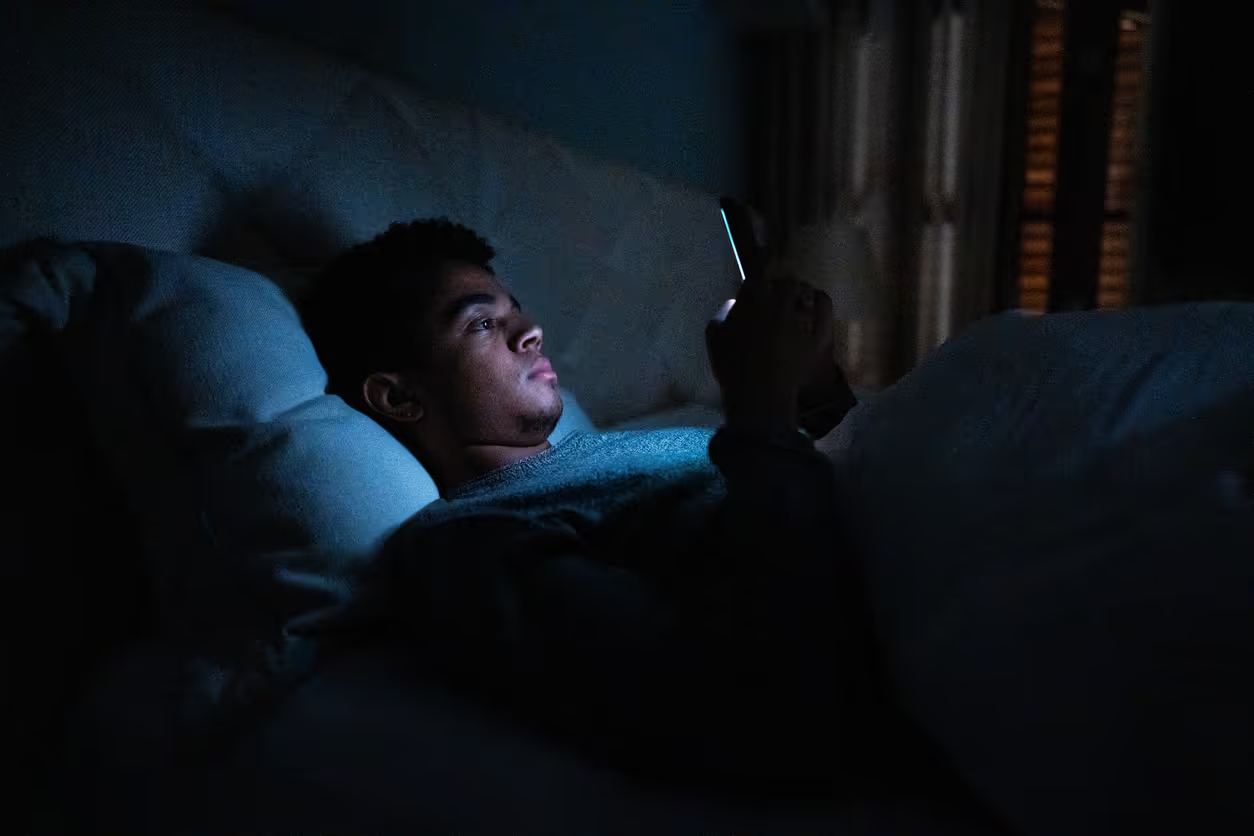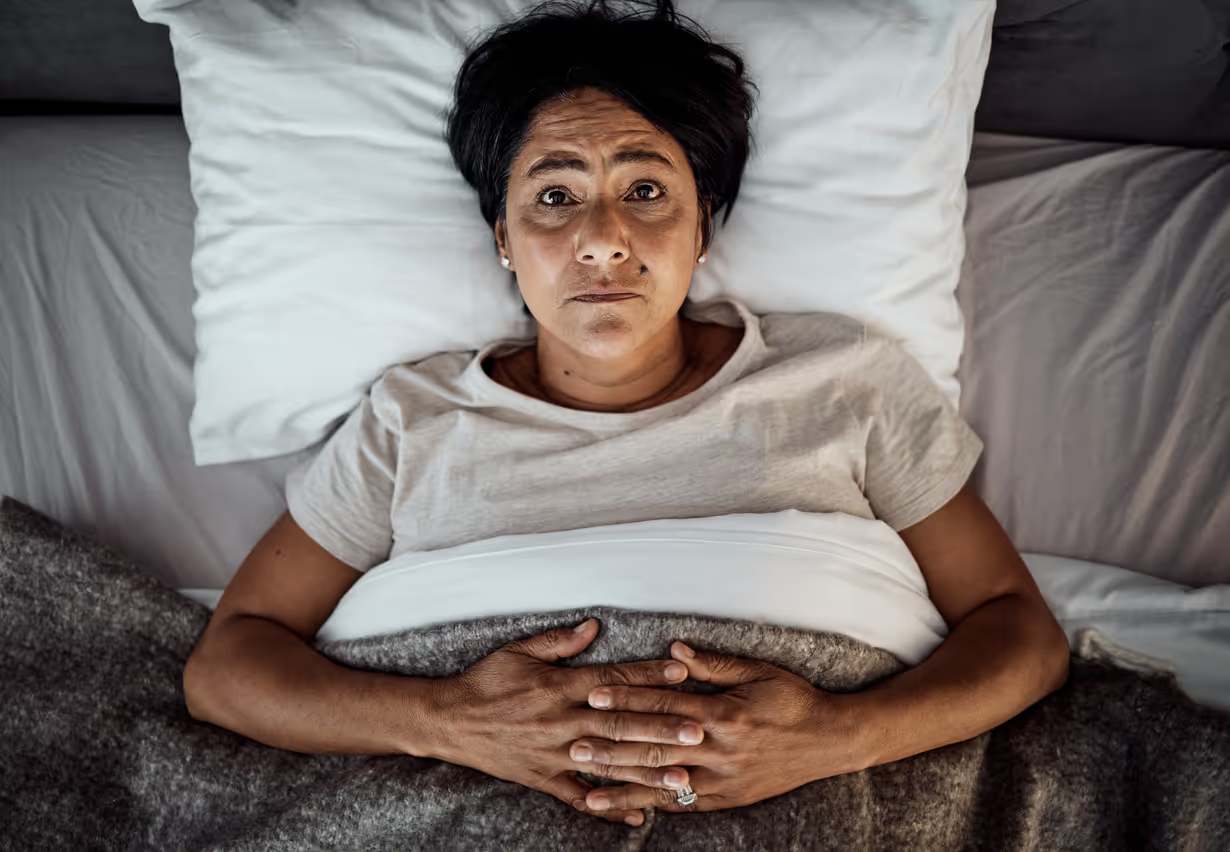Why can’t I sleep? Common causes and what you can do about it

If you’ve ever stared at the ceiling wondering, “Why can’t I sleep?”—you’re not alone.
Difficulty falling asleep, staying asleep, or waking up too early affects millions of people every night. Whether it's occasional restlessness or chronic insomnia, understanding what’s behind your sleepless nights is the first step toward better rest.
Curious about your sleep health? Take our proprietary free Sleep Assessment. Answer a few questions and you will receive a comprehensive report on your sleep health. It is free and takes about five minutes to complete.
Here’s a breakdown of common reasons why you can’t sleep, and science-backed strategies to help you reclaim your nights.
1. Racing thoughts and anxiety
One of the most common answers to “Why can’t I sleep?” is an overactive mind. Stressful thoughts about work, relationships, or your to-do list can trigger the body’s fight-or-flight response, keeping you alert long past bedtime.
What you can do:
- Practice 4-7-8 breathing or progressive muscle relaxation
- Try journaling before bed to clear your mind
- Use guided meditations or calming audio to help you wind down
2. Too much screen time before bed
Exposure to blue light from phones, tablets, or TVs in the evening can suppress melatonin, the hormone that helps regulate sleep.
What you can do:
- Avoid screens at least 60 minutes before bed
- Use blue light filters or night mode if you must use a device
- Opt for calming evening activities like reading or stretching
3. Caffeine or alcohol late in the day
If you're thinking “I can’t sleep and I don't know why”—take a closer look at your afternoon coffee or evening cocktail. Caffeine is a stimulant that can linger in your system for hours, while alcohol can disrupt deep sleep.
What you can do:
- Avoid caffeine after 2:00 p.m.
- Limit alcohol before bed—while it may help you fall asleep, it often causes middle-of-the-night wakeups
4. Poor sleep habits
Inconsistent bedtimes, using your bed for work or TV, and napping during the day can confuse your body’s internal clock.
What you can do:
- Go to bed and wake up at the same time every day
- Reserve your bed for sleep and intimacy only
- Avoid naps longer than 20 minutes, especially after 3 p.m.
5. Environmental factors
A bedroom that’s too bright, noisy, or warm can prevent you from falling asleep or staying asleep.
What you can do:
- Use blackout curtains, white noise machines, or earplugs
- Keep your room between 15–19°C (60–67°F)
- Invest in a supportive mattress and breathable bedding
6. Underlying medical or mental health conditions
Sometimes the reason you can’t sleep is deeper than habits. Insomnia can be linked to depression, anxiety disorders, chronic pain, sleep apnoea, or hormonal changes (e.g., menopause or thyroid conditions).
What you can do:
- Talk to your doctor or a licensed therapist
- Consider Cognitive Behavioural Therapy for Insomnia (CBT-I)—the most effective long-term treatment for chronic insomnia
- Avoid self-medicating with sleep aids unless recommended by a healthcare provider
Final thoughts: You’re not alone
If you find yourself repeatedly saying “I can’t sleep,” don’t ignore it. Occasional sleeplessness is common, but chronic insomnia is a health issue worth addressing. By identifying what’s standing in your way and taking targeted steps, you can begin to sleep more peacefully and wake up feeling truly rested. If you want to know more about your sleep health, try taking our comprehensive free Sleep Assessment and in only a few minutes of answering questions you will receive a useful free Sleep Health Report.
Want more help?
We have successfully treated insomnia and other sleep disorders for more than 40+ years. Find out how our proprietary protocols can help you achieve lasting improvements to your sleep health, general health and wellbeing. Start your journey here.
Frequently asked questions
Why can’t I sleep even when I’m tired?
Your brain might be overstimulated by stress, screen time, or disrupted sleep cues. An overactive nervous system can override physical tiredness.
How do I know if I have chronic insomnia?
If sleep difficulties occur more than 3 nights a week for over 3 months and impact your daily life, it may be chronic insomnia.
Can I fix poor sleep without medication?
Yes. Lifestyle changes, CBT-I, and improved sleep habits are effective, research-backed methods for overcoming insomnia naturally.
Should I worry if I wake up at 3 a.m. often?
Not necessarily, but if it happens regularly and you can’t fall back asleep, it could point to stress, environment issues, or hormonal shifts.
When should I seek professional help?
If sleep troubles persist despite trying self-help strategies, or if they’re affecting your mental health, it’s time to consult a sleep specialist. At Somna Health, Our protocols are proprietary—a direct result of practitioner feedback from thousands of client sessions and training cohorts—meaning more precise, individualized, and trusted outcomes than off-the-shelf CBT‑I and other interventions. Find out more here or take our free proprietary Sleep Assessment and in just a few minutes you will receive a comprehensive free report on your sleep health.
Not sure about your sleep heatlh? Get started on your path to better sleep today.
Take our Free Sleep Assessment to obtain your personalized Sleep Health Report. This report will help you identify what kind of specialist or treatment is best for you.
Schedule a meeting here to learn more about how we can help you improve your sleep health or email us at sleep@somnahealth.com.
Book a time with one of our sleep specialists to get your sleep back on track.





